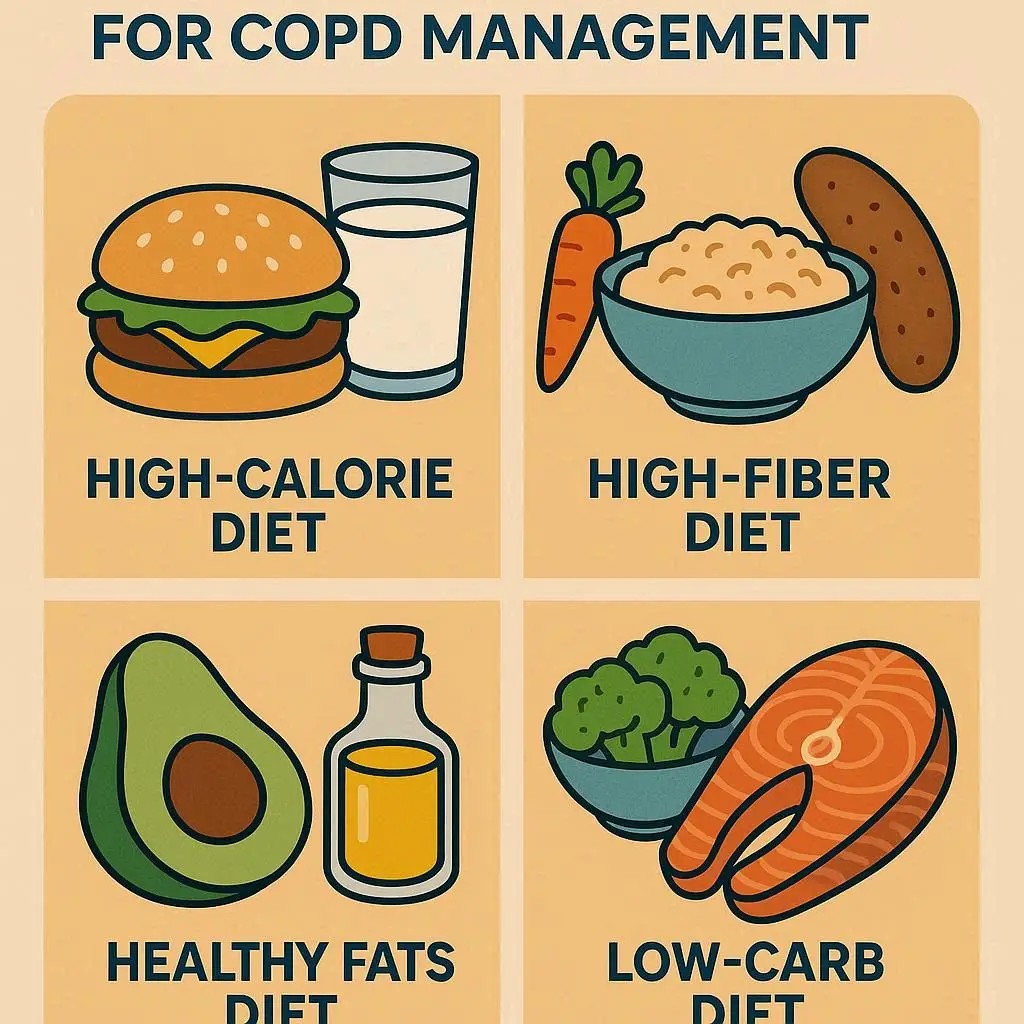Breathe Easier, Eat Smarter
For individuals with COPD, nutrition plays a vital role in managing symptoms and improving quality of life. The simple act of breathing requires more energy, so a well-balanced diet provides the fuel your body needs to thrive. This guide helps you explore key dietary considerations.

How Nutrition Impacts COPD Management
Proper nutrition directly supports your body's ability to cope with the challenges of COPD in several key ways.
Fuel for Breathing
The muscles used for breathing can burn up to 10 times more calories for a person with COPD. A nutrient-dense diet provides the essential energy to prevent fatigue and shortness of breath.
Maintain Muscle Strength
Adequate protein is crucial for maintaining the strength of respiratory muscles, including the diaphragm. Stronger muscles make breathing easier and more efficient.
Boost Immune System
Vitamins and minerals are vital for fighting off respiratory infections, which can be particularly dangerous for those with COPD. A healthy diet strengthens your body's natural defenses.
Building Your Plate: A Balanced Approach
The right mix of carbohydrates, proteins, and fats is key. Metabolism of carbs produces more carbon dioxide than fats and proteins, so a lower-carb, higher-fat diet may help some individuals breathe easier. Click on a section of the chart to learn more.
Balanced Macronutrients
A balanced intake of macronutrients is essential for energy and overall health. Each plays a unique role in supporting your body's functions, especially when managing COPD. Select a category from the chart for details.
Foods to Emphasize
Lean Proteins
Build muscle strength. Choose chicken, fish, beans, eggs, and nuts.
Complex Carbohydrates
Provide steady energy. Opt for whole-wheat bread, oats, and quinoa.
Healthy Fats
Calorie-dense energy with less CO2 production. Find in olive oil, avocados, and nuts.
Potassium-Rich Foods
Important if you're on diuretics. Eat bananas, oranges, potatoes, and tomatoes.
Foods to Limit
Simple Carbohydrates
Low in nutrients and produce more CO2. Limit sweets, sugary drinks, and white bread.
Salty Foods
Can cause water retention, making it harder to breathe. Avoid processed foods and canned soups.
Carbonated Drinks
Can cause gas and bloating, pressing on the diaphragm and restricting breathing.
Certain Vegetables
Broccoli, cabbage, and beans can cause bloating in some people. Eat them in moderation if they affect you.
Practical Tips for Better Eating
Rest Before Meals
Feeling tired can make eating difficult. Rest for a bit before you eat to conserve energy.
Eat Smaller, More Frequent Meals
Try 4-6 small meals instead of 3 large ones. This prevents your stomach from getting too full and pressing on your diaphragm.
Stay Hydrated
Drink plenty of fluids throughout the day to keep mucus thin and easier to clear. Limit drinks during meals to avoid feeling full too quickly.
Choose Easy-to-Chew Foods
When you're short of breath, chewing can be tiring. Opt for softer foods like smoothies, soups, and yogurt.
Sample Meal Plan
This is just a sample to give you ideas. Always consult with a healthcare provider or dietitian to create a plan that's right for you.